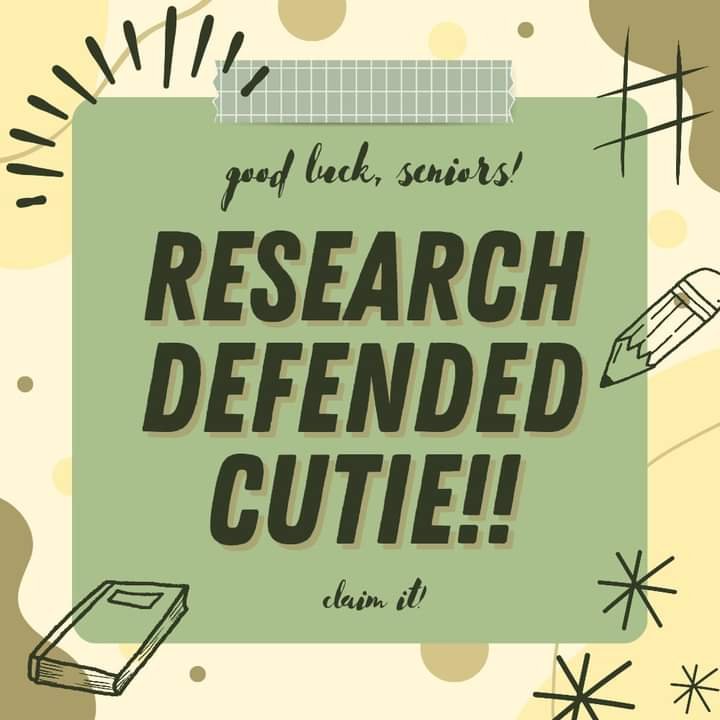
Hey, what's up everyone?? it's me again, haruki.tls123 and back with a new blog post. This time, I want to share my experience from last year's grade 11 practical research — which is a qualitative research. We'll talk about the challenges I've faced and the strategies we used for our qualitative study in PR1. Oh, and by the way, I'm excited to share that we won an award on it so keep reading!! ❤️
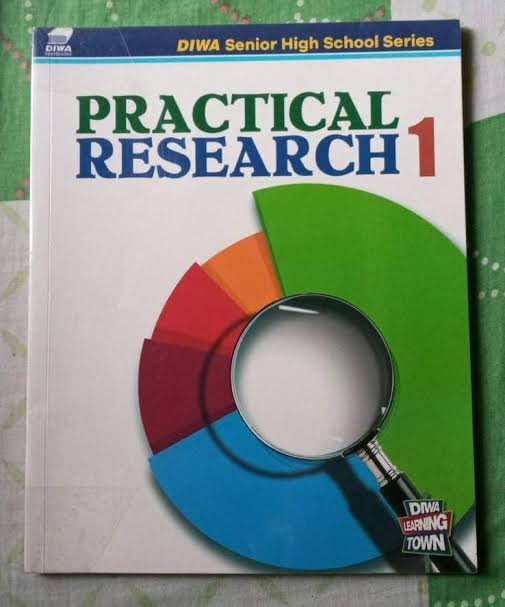
So, in grade 11, we have this thing called Practical Research, and let me tell you, it can be a bit of a puzzle, especially for us STEM students. You see, it's all about this qualitative research stuff, which is more likely a thing for Humanities and Social Sciences (HUMSS) strand. You know, digging into why people do what they do, which is a bit different from our usual experiments and equations. Practical Research is a big deal because it's one of those things we need to do to move forward in senior high or to graduate. Yup, it's a requirement to all senior high school students and also one of the very challenging one. From the title hearing to the nerve-racking oral defense, you've got to go through it all! but even though it is a very tricky one, it is one of the fundamental concept for Grade 11 students to be prepared for Grade 12.
Speaking of grade 12, that's when we switch gears and dive into quantitative research – you know, lots of numbers and statistics in this case, if Grade 11 is qualitative, then Grade 12 is quantitative which is kinda favorable for the STEM students now. So, grade 11 practical research is like our warm-up round for exploring the human side of research, while grade 12 gets us ready to go into the numbers and analyze data like pros hehe....
THE PROCESS AND PREPARATIONS
So now, let me take you through my journey, starting from the very first step: the Topic Proposal
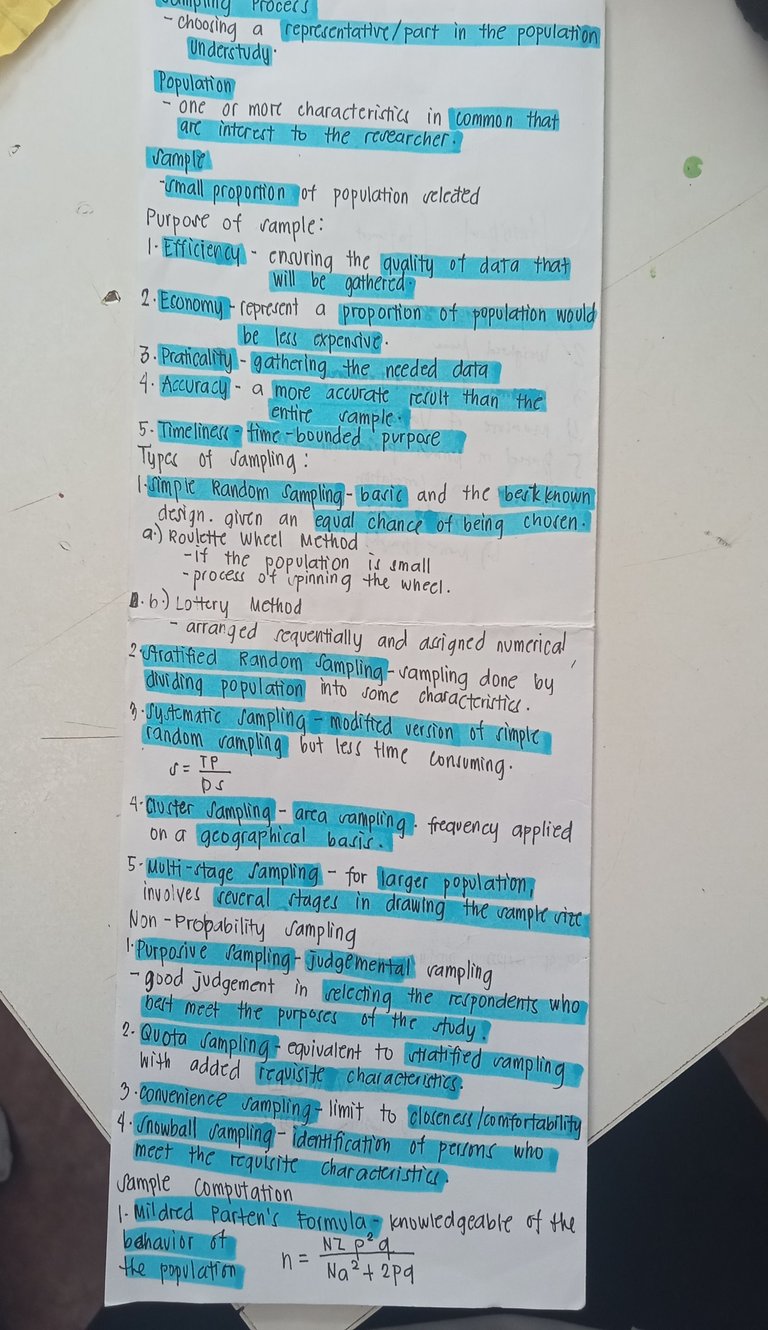
As a group of six members in our section, we faced the task of selecting a topic for our qualitative research. We brainstormed and presented three potential topics during the topic proposal phase. Eventually, we settled on an topic: "Coping Strategies of Senior High School Teachers in utilizing technology at Naga Senior High School."
You might notice something here – yes, this topic fits well with our strand because it's about coping strategies, which are personal experiences, perfect for qualitative research. Plus, it includes the word "technology," which fits our STEM focus. But actually this wasn't our first choice:>. At first, we wanted to explore beautism, like studying colorism – how people judge you based on your skin color. But that topic didn't fit our strand, so we had to go into our second option. That's how we ended up with this current topic.
The next phase on this one is the:
Title Hearing
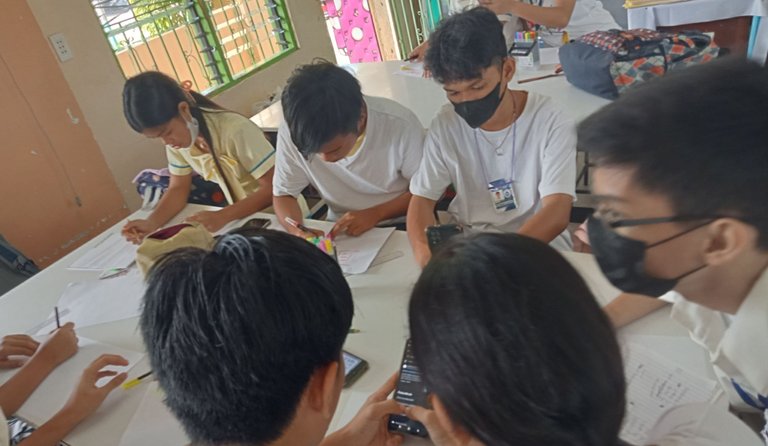
(here we are, brainstorming for the possible questions that our research adviser may ask during the title hearing, ahh I miss this moments TwT)
For our group, the key strategy was to dive deep into researching and understanding our chosen topic. It's essential to feel connected to your research, as it fuels your motivation to dig deeper and go to your research conduct smoothly . This approach proved to be our number one strategy for ensuring the success of a research. During the title hearing, things went smoothly. We were well-prepared, thanks to our thorough research and genuine interest in our topic. After the hearing, our research was finalized, and we proudly titled it:
"COPING STRATEGIES EMPLOYED BY SENIOR HIGH SCHOOL TEACHERS IN NAGA NATIONAL HIGH SCHOOL IN UTILIZING TECHNOLOGY"
Going to the next phase, which is the Design Hearing
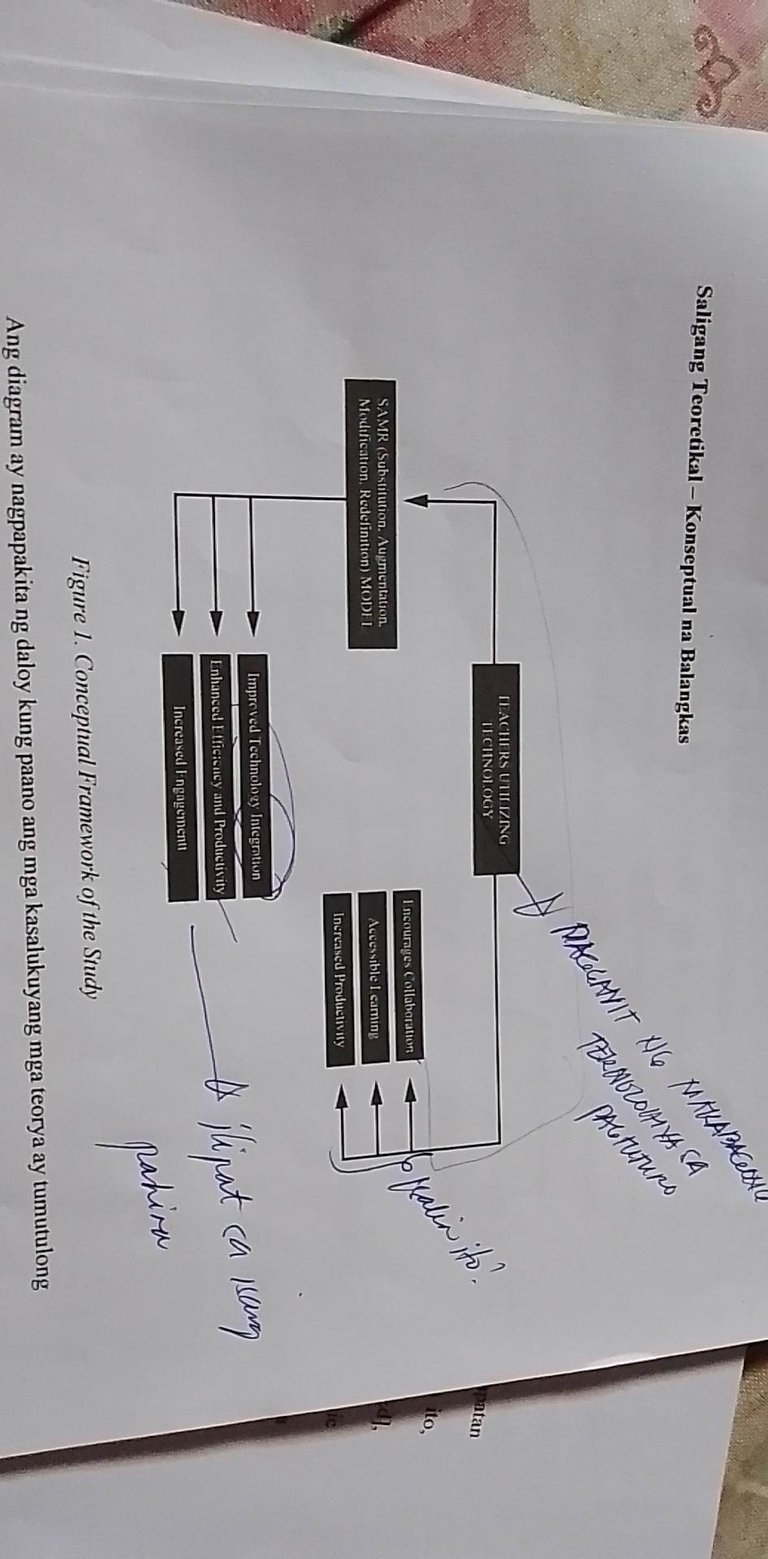
(our corrected research paper after the Design Hearing huhu)
So, what's this all about?
Well, picture this: you're sitting in front of four teachers, and they're diving deep into your research paper, from Chapter one to Chapter three (methodology). They're asking questions about your study's focus, the tools you'll use, and how you'll narrow down your research. It's like a test to see if your research plan is solid enough to move forward to the next phase, where you actually conducting your study through interviews or surveys, based on your research.
You might get a bunch of corrections and suggestions, but don't sweat it – that's all part of the process. The good news is, our research didn't get rejected. After making any needed changes and getting a clearer picture of our research, we're all set to dive into actually doing the research!!!!
Now for the most exhausting part: The Conducting Of Research
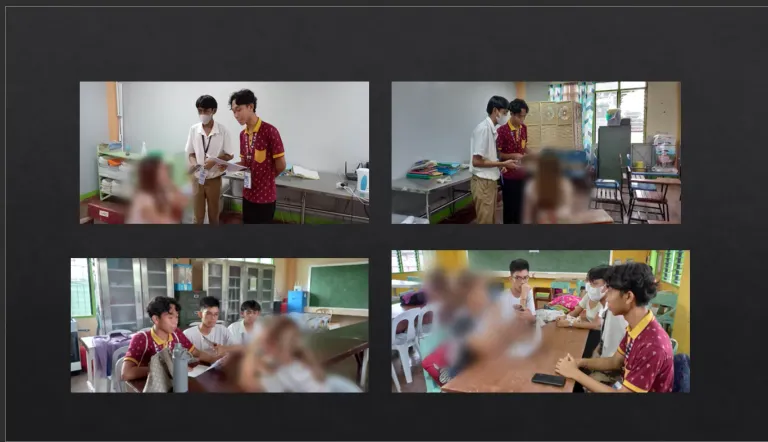
(interviewing the respondents, which is blurred for their confidentiality)
During this phase, we interviewed our respondents using open-ended questions in questionnaires. This allowed them to explain their answers fully, and if they had any good ideas, we could ask follow-up questions to get more information for our data analysis. This took up a whole day, and it was really tiring. But we kept going, knowing that treating our respondents well would lead to better answers and improve our research paper. We end the interview after we get into the saturation level, where the question is being repeteadly answer in the same thought by our respondens. And in the end, it did just that – our research turned out more successful because of it.
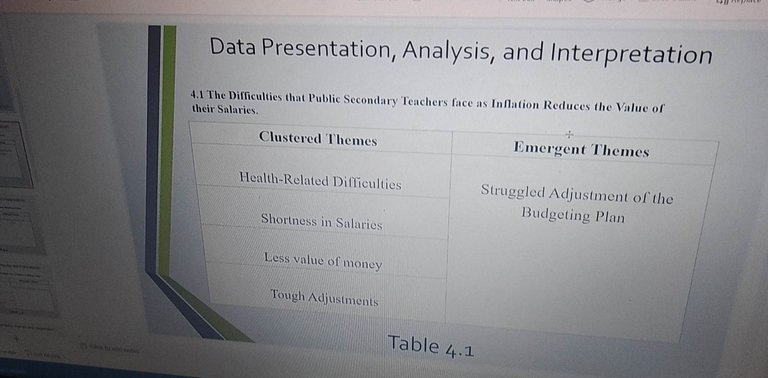
(data analysis procedure)
After gathering their answers, we had to transcribe them, which was incredibly exhausting, I PROMISE YOU HUHU! Transcribing is basically typing out everything that was said during the interviews, WORD FOR WORD. Can you imagine? With so many respondents and questions, it felt like a never-ending task! But after transcribing all those lengthy recordings, we moved on to data analysis. Here's where the real work begins. We grouped together similar answers and looked for emerging themes. These themes help us answer the research problem statement of our study.
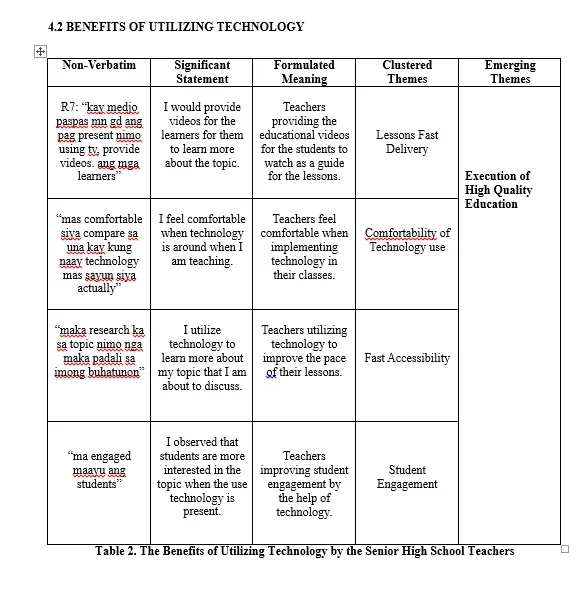
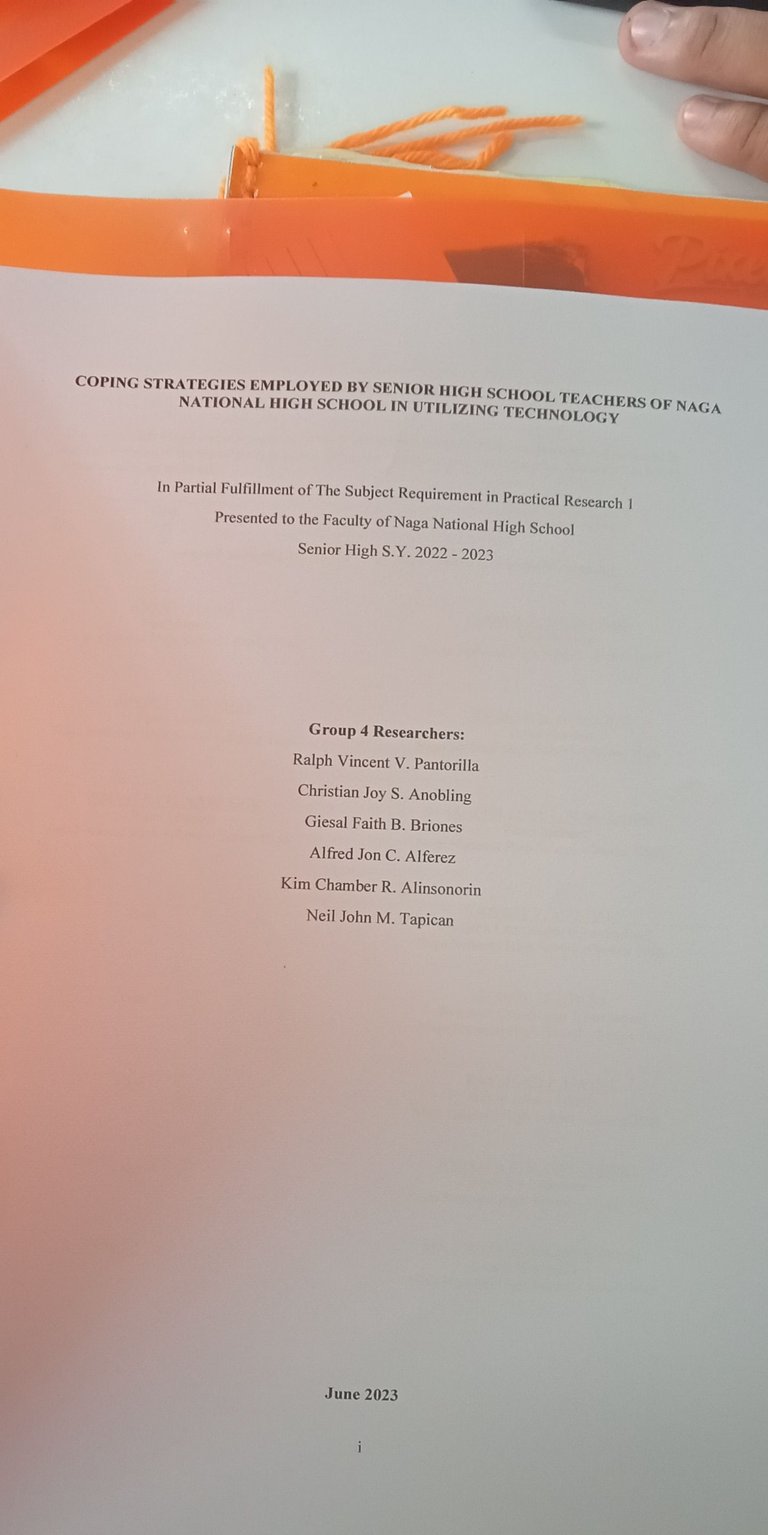
(chapter 5 and finalizing our research paper)
After identifying the emerging themes, the next step is interpretation and making recommendations. This involves analyzing the data, drawing conclusions, and suggesting actions based on the findings. Then, we write the abstract, which summarizes the entire research paper in a concise manner.
Finally, after all the hard work, it's time to print the research paper into hard copy and prepare for the final oral defense. This involves rehearsing our presentation, preparing to answer questions from the panel, and making sure everything is in order for the big day. We must be prepared for this final battle!!
THE FINAL ORAL DEFENSE
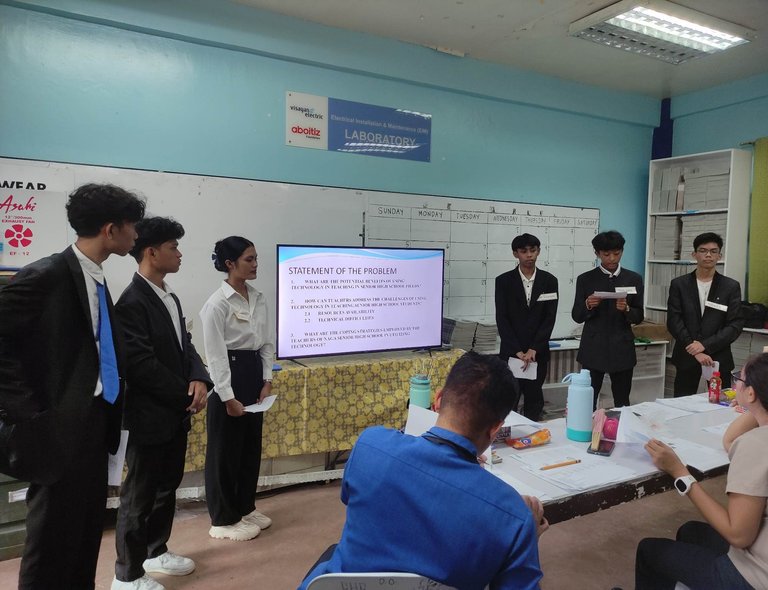
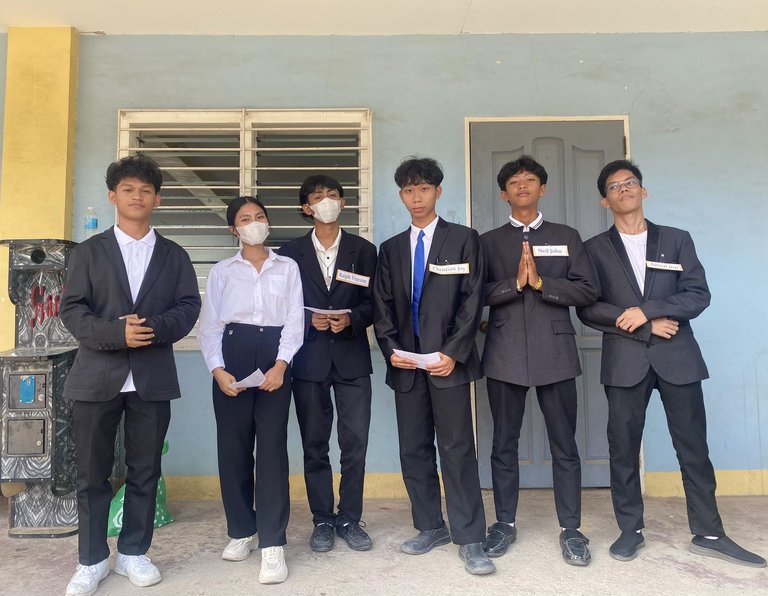
Now, let's talk about the final phase – the Final Oral Defense, which is feared by everyone, and understandably so. In the worst-case scenario, your research could be rejected, and what happens then? Well, it's back to square one! You'd have to start all over again, possibly delaying your progress to the next grade level or graduation, or even affecting your grades. To avoid this, we dedicated every free moment to rehearsing possible questions from the panel. We made sure to thoroughly understand every part of our research so that when questioned, we knew our stuff. Plus, we practiced speaking confidently for the defense. But then, finally, it was over – our research defended at last! And to top it off, we were told that our research was "very, very okay" – one of the moment I'll never forget.
To add to the excitement, our research adviser turned our Practical Research into a contest. He said he'd rank us based on performance and our research would be recognized with medals during the ceremony. We didn't expect anymore on it because we're contented that our research is successful, but then......
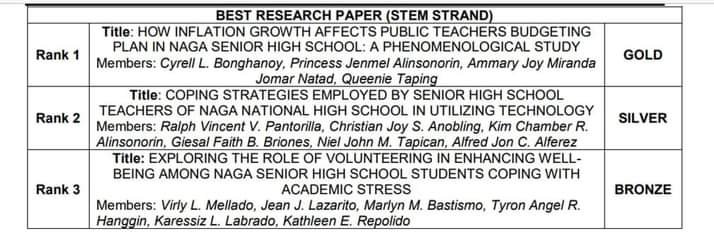
(Rank Two best research paper in STEM strand)
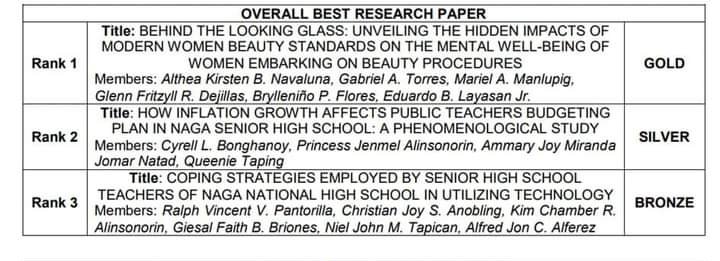
(Rank Three Overall Best Research Paper)
But then, we didn't expect to be chosen 😭 It was such a surprise! And not just one, but we received two awards!
We received the Top Two Best Research Paper in the STEM strand, out of 12 groups. And to top it off, we were also awarded Top Three Overall Best Research Paper, beating out many other groups from different strands. It was truly overwhelming! We never imagined we'd achieve such recognition. It just goes to show that hard work and dedication really do pay off in the end.
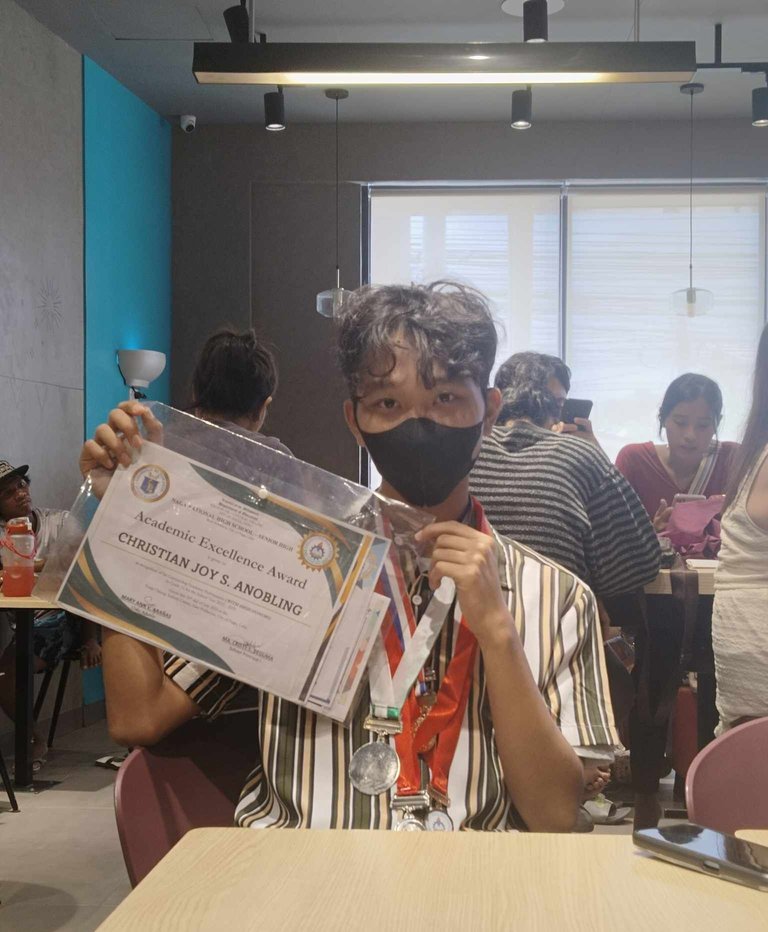
MY SUGGESTIONS
So let me share with you the top five best suggestions for a successful research, based on my own experiences. These simple tips helped me navigate through the ups and downs of the research process and achieve great results.
•Understand the topic thoroughly: Make sure you really get what you're studying.
•Plan and organize effectively: Have a clear plan and stay organized with your work.
•Stay focused and motivated: Keep your eyes on the goal and stay excited about your research. Additionally, PRAY PRAY AND PRAY because God will always motivates you if you do your work and not procrastinating:>
•Seek guidance and feedback from expertise: Don't be afraid to ask for help and listen to advice from others.
•Practice and prepare diligently: Practice your presentation and be well-prepared for any questions.
Reflecting on my journey through the practical research process, I've learned that dedication, perseverance, and a positive mindset are key to achieving success. From selecting a topic to conducting interviews, transcribing data, and defending our research, each step presented its own challenges and rewards. Through it all, the support of my peers, the guidance of my teachers, and the determination of my groupmates helped me overcome obstacles and reach new heights.
To everyone embarking on their own research journey, I offer this advice: stay curious, stay committed, and never underestimate the power of teamwork. With passion and persistence, your research will be well-defended!!! ❤️
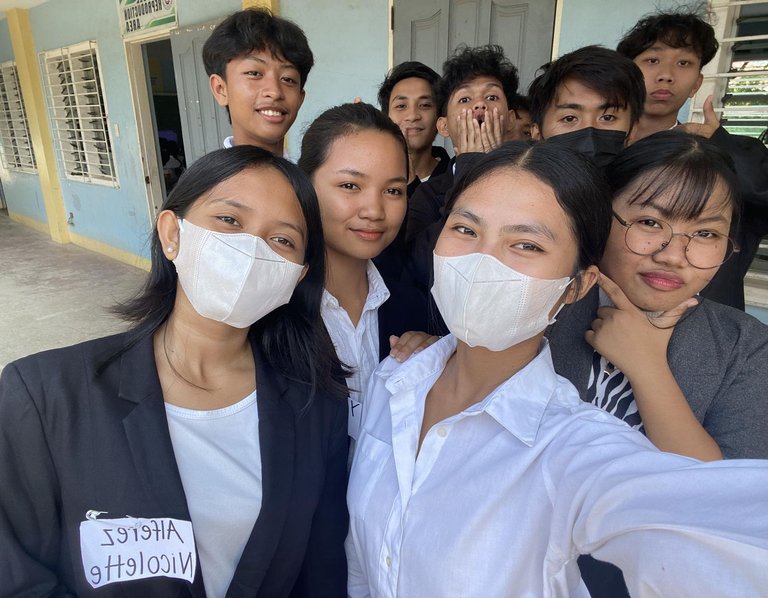
For my classmates and schoolmates, good luck to all of us for our upcoming FINAL ORAL DEFENSE in Grade 12 PROJECT RESEARCH in the next months!! also for the grade 11 out there, goodluck to your research!! GAMBARE 💪
haruki.tls123 out! See you in the next blog! sayonara<3 ❤️
Congratulations @haruki.tls123! You have completed the following achievement on the Hive blockchain And have been rewarded with New badge(s)
Your next target is to reach 2250 upvotes.
Your next target is to reach 100 replies.
You can view your badges on your board and compare yourself to others in the Ranking
If you no longer want to receive notifications, reply to this comment with the word
STOPCheck out our last posts:
Omg thank you so much Hive!!! I'll do my best to do some more blogs~
You're welcome @haruki.tls123. Looking forward to you reaching your new target 😅
Wow we also have our research Study,Im currently a grade 10 SPS students, we're also having our final defense next quarter,Good luck to us!🥰
woahhh that's good HAHAHAHA goodluck!!!
Congratulations on this milestone, Defending a thesis in school is one of the hardest but enjoyable parts of the process. Wher you can measure your learnings.
true sir HAHAHAAH